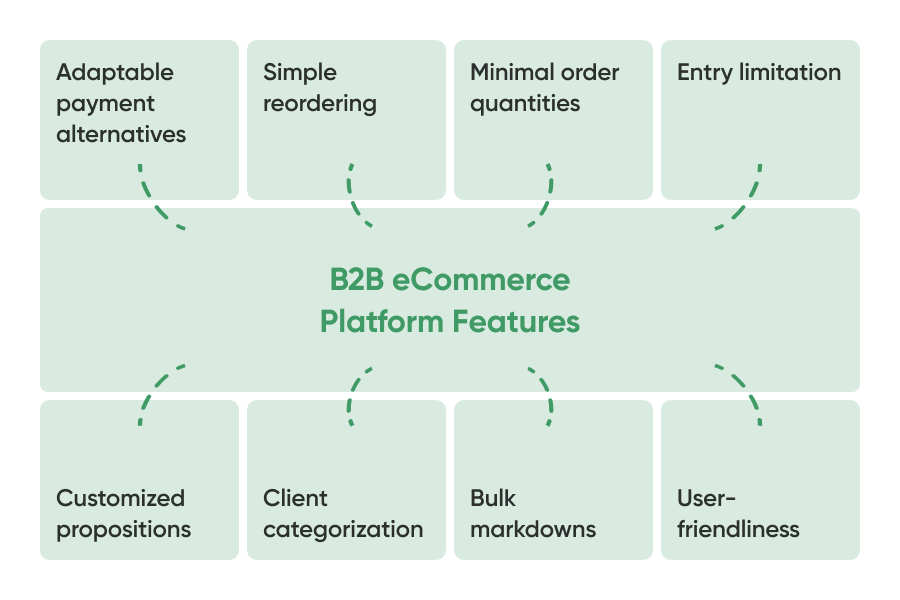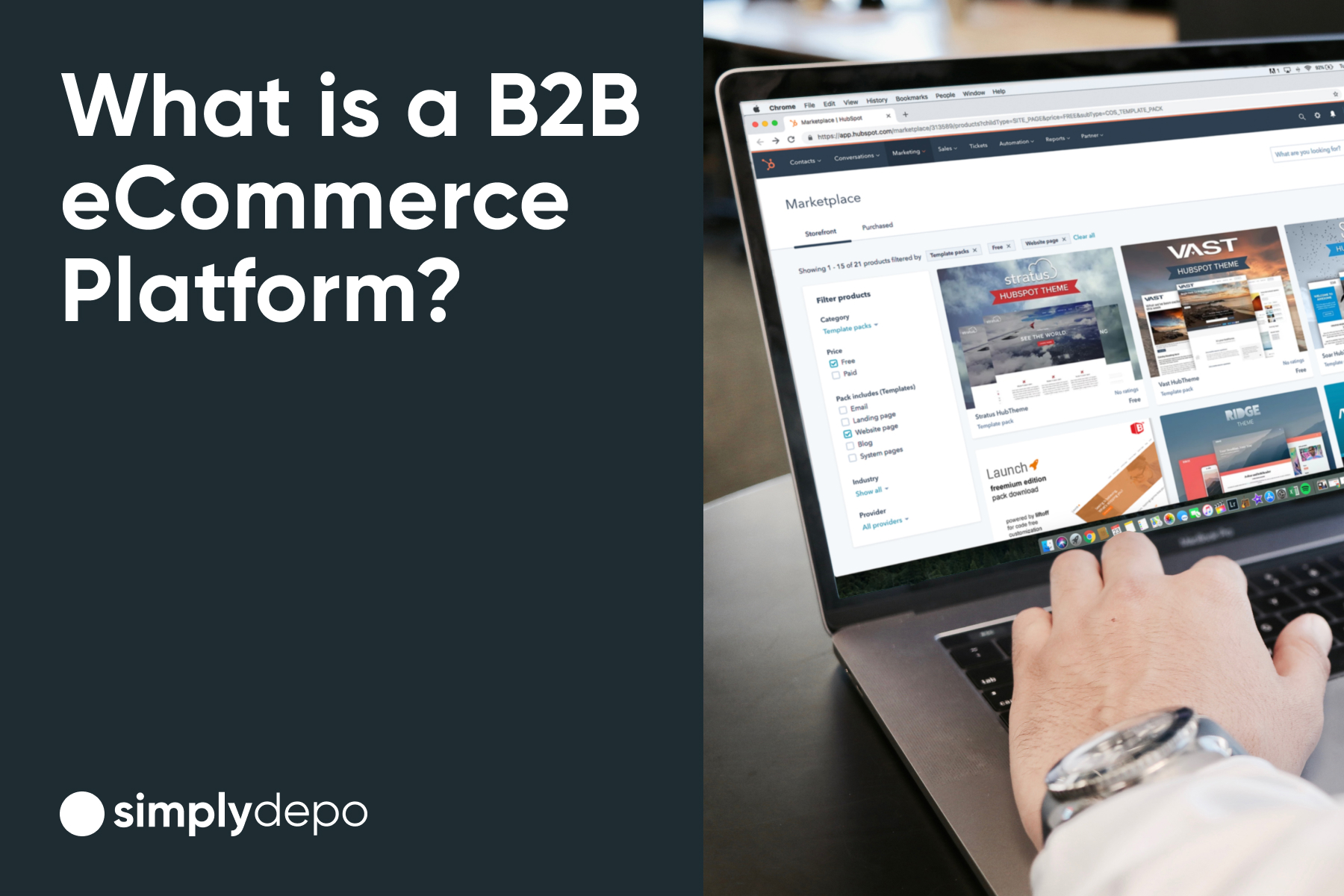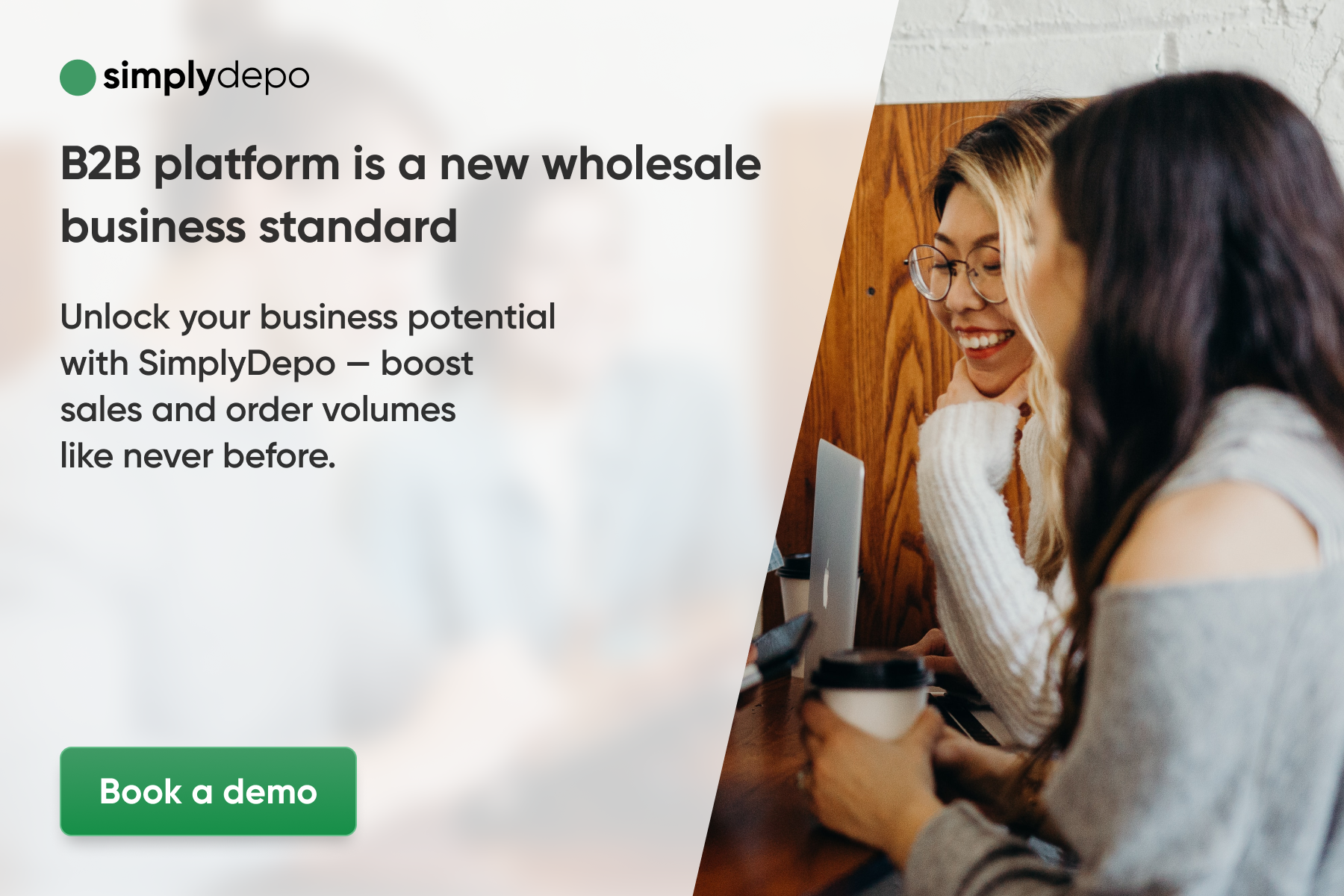In the ever-changing world of modern commerce, B2B eCommerce platforms have emerged as a significant shift, transforming the way businesses conduct wholesale and industrial transactions. But what exactly characterizes a B2B eCommerce platform, and how does it differentiate from traditional B2C eCommerce channels and regular B2B practices?
At its core, a B2B eCommerce platform serves as a virtual marketplace exclusively designed for business-to-business interactions. Unlike B2C platforms that target individual consumers, B2B eCommerce platforms facilitate seamless transactions between suppliers, wholesalers, distributors, manufacturers, and other industry players.
The key features that define a B2B eCommerce platform:

Tailored Offerings: A notable characteristic of a B2B platform lies in its ability to provide customized product offerings and pricing, tailored to meet the unique needs of each client. This adaptability empowers businesses to negotiate exclusive deals, offer volume-based discounts, and curate personalized catalogs for their esteemed customers.
Customer Segmentation: The practice of categorizing customers based on their buying patterns, preferences, and historical purchase data plays a crucial role in B2B commerce. Advanced B2B eCommerce platforms utilize customer segmentation to drive targeted marketing strategies, enhance customer support, and deliver tailored product recommendations, fostering long-term customer loyalty.
Flexible Payment Alternatives: The multifaceted nature of B2B transactions demands a comprehensive array of payment methods. B2B eCommerce platforms seamlessly integrate diverse payment options, including credit lines, pay-on-delivery, and net payment terms. This flexibility not only empowers buyers but also streamlines the procurement process, nurturing strong and enduring business partnerships.
Effortless Reordering: Given the recurring nature of many B2B purchases, streamlined reordering processes hold immense value. An efficient B2B platform ensures that clients can effortlessly replenish their stock of essential items, avoiding redundant purchase procedures.
Minimum Order Quantities: Minimum order quantities are a common aspect of B2B transactions, primarily due to wholesale procurement practices. A robust B2B eCommerce platform caters to these requisites, facilitating hassle-free ordering while adhering to predetermined minimum quantities.
Access Control Mechanisms: B2B transactions often involve sensitive information and exclusive agreements. As a safeguard, B2B eCommerce platforms implement robust access control mechanisms, ensuring that only authorized personnel from approved businesses can access specific products or pricing details.
Volume-Based Incentives: Bulk purchasing is a hallmark characteristic of B2B trade. Incentivizing larger orders, B2B eCommerce platforms offer enticing volume-based discounts, fortifying enduring relationships and encouraging repeat business.
User-Friendly Interface: Despite the complexities intrinsic to B2B transactions, user-friendliness remains paramount. B2B eCommerce platforms emphasize intuitive navigation, expedited order processing, and seamless customer service, collectively contributing to an enhanced user experience.
The Advantages of Embracing B2B eCommerce Platforms:
The adoption of B2B eCommerce platforms presents a plethora of advantages for both buyers and sellers alike:
Global Market Reach: By transcending geographical barriers, B2B eCommerce platforms enable businesses to expand their reach and tap into new markets and clients across the globe.
Round-the-Clock Accessibility: The online nature of B2B platforms ensures 24/7 accessibility, allowing buyers to place orders, browse products, and access critical information at their convenience.
Streamlined Procurement Process: By eliminating traditional paperwork, manual errors, and communication delays, B2B eCommerce platforms optimize the procurement process, thereby enhancing overall efficiency and cost-effectiveness.
Actionable Insights: Harnessing the analytical tools embedded within the platform, businesses gain invaluable insights into customer behavior, preferences, and market trends. Armed with this data-driven intelligence, enterprises can make informed decisions, refine their offerings, and strengthen their market positioning.
In conclusion, B2B eCommerce platforms have paved the way for a transformative era in modern commerce, providing businesses with unprecedented opportunities to thrive in an ever-competitive landscape. By catering to the unique needs of B2B transactions through tailored offerings, customer segmentation, flexible payment options, and streamlined processes, these platforms empower businesses to foster robust partnerships and cultivate sustained growth.
Embracing the advantages of B2B eCommerce platforms, such as expanded market reach, 24/7 accessibility, streamlined procurement, and actionable insights, is a strategic imperative for any forward-thinking enterprise aiming to navigate the path to business success in the 21st century. As technology continues to evolve, B2B eCommerce platforms will remain essential for businesses seeking to unlock their full potential in an increasingly interconnected global economy.
Frequently Asked Questions About Wholesale Distribution Software
What is a B2B eCommerce platform?
A B2B eCommerce platform is an online marketplace or website that facilitates business-to-business transactions, allowing companies to buy and sell products or services directly over the Internet.
How does a B2B eCommerce platform work?
B2B eCommerce platforms provide a digital space where suppliers can list their products, and buyers can browse, search, and place orders. The platform manages the entire transaction process, from order placement to payment and delivery.
What are the benefits of using a B2B eCommerce platform?
Using a B2B eCommerce platform streamlines the buying and selling process, enhances efficiency, reduces manual errors, increases accessibility, and expands the reach of businesses to a broader customer base.
Is it secure to conduct B2B transactions online?
Yes, reputable B2B eCommerce platforms employ advanced security measures like SSL encryption and secure payment gateways to ensure that transactions are safe and protected from unauthorized access.
Can the platform integrate with existing systems?
Many B2B eCommerce platforms offer integration capabilities with ERP, CRM, and other business systems, allowing seamless data synchronization and a more unified workflow.
How can the platform help streamline order management?
B2B eCommerce platforms typically offer features like real-time inventory tracking, automated order processing, and personalized pricing, which streamline the entire order management process for businesses.
Does it support multiple payment options?
Yes, most B2B eCommerce platforms support various payment methods, such as credit cards, bank transfers, and electronic payment systems, to cater to different buyer preferences.
Can I track shipping and delivery through the platform?
Yes, B2B eCommerce platforms often provide shipment tracking and delivery status updates, allowing buyers and sellers to monitor orders and manage expectations efficiently.
Is customer support available for technical issues?
Reputable B2B eCommerce platforms typically offer customer support services to assist users with technical issues, troubleshooting, and platform-related inquiries.
What customization options are offered for branding and design?
Many B2B eCommerce platforms offer customization options for branding, allowing businesses to showcase their logos, colors, and design elements to maintain a consistent brand identity across the platform.
Boost Sales.
Cut Manual Work.
Streamline ordering, routing, and retail execution — while giving every rep the tools to grow accounts faster.
-
+15h
Save weekly
per rep -
93%
Increase
buyer retention -
24%
Increase
in retail sales

Error: Contact form not found.











